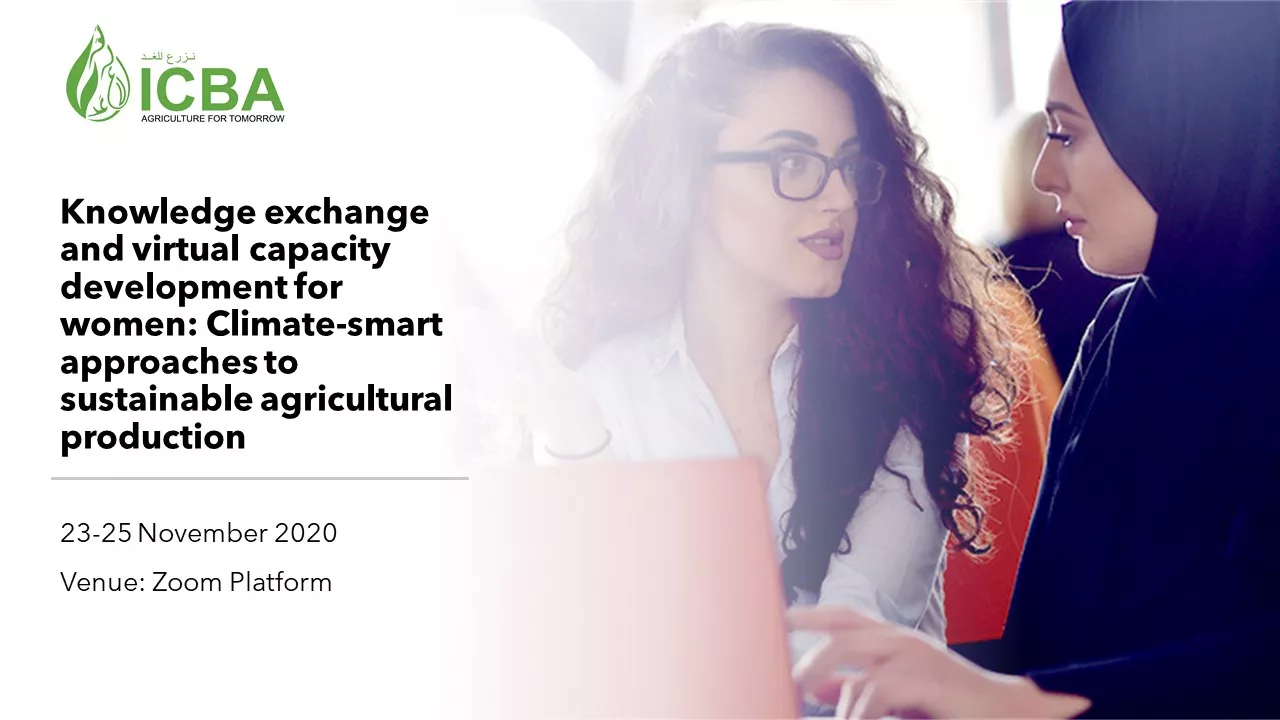Knowledge exchange and virtual capacity development for women: Climate-smart approaches to sustainable agricultural production
Smallholders and family farmers are at the heart of transition to more sustainable and productive agriculture as they produce a large share of the world’s food and play a key role in contributing to food security and nutrition, managing natural resources and ensuring sustainable livelihoods of rural communities. For example, smallholder family farming accounts for around 80 percent of agricultural production in the Near East and North Africa. Food security and livelihoods of these farmers largely depend on agricultural activities, making them extremely vulnerable to current challenges affecting agriculture, including rapid depletion of natural resources, adverse effects of climate change and loss of biodiversity.
In small-scale family farming, women play an essential role through their labor, skills and knowledge of agricultural practices and as primary supporters of nutrition and livelihoods of their families. Despite their central role in agricultural production, women often have a disadvantaged position due to the lack of access to resources and opportunities, including extension services, education and training which limit their capacities to adopt innovative practices and technologies. Strengthening capacities of women farmers to adopt innovative approaches to boost agricultural productivity and to better cope with climate extremes and limited natural resources is essential in the context of the Sustainable Development Goals, in particular SDG 2 on ending hunger and promoting sustainable agriculture, SDG 5 on achieving gender equality and SDG 13 on combatting climate change.
Organizers
ICBA, Dubai, UAE
Presenter(s)
Dr. Abdelaziz Hirich, Biosaline Agriculture Specialist, Morocco
Dr. Ali El Battay, Senior Scientist - Remote Sensing and Drone Technology, ICBA and Chief Innovation Officer of FEDS, UAE
Dr. Henda Mahmoudi, Plant Physiologist, ICBA, UAE
Mr. Rafik Sifeddine, Value Chain Specialist, Morocco
Mr. Rashyd Zaaboul, Modeler - Climate Change, ICBA, UAE
Dr. Redouane Choukr-Allah, Soil and Water Management Specialist, Morocco
Dr. Ali El Battay, Senior Scientist - Remote Sensing and Drone Technology, ICBA and Chief Innovation Officer of FEDS, UAE
Dr. Henda Mahmoudi, Plant Physiologist, ICBA, UAE
Mr. Rafik Sifeddine, Value Chain Specialist, Morocco
Mr. Rashyd Zaaboul, Modeler - Climate Change, ICBA, UAE
Dr. Redouane Choukr-Allah, Soil and Water Management Specialist, Morocco
Event Coordinator
Mr. Ghazi Al-Jabri, Capacity Development Specialist, ICBA, Dubai, UAE











